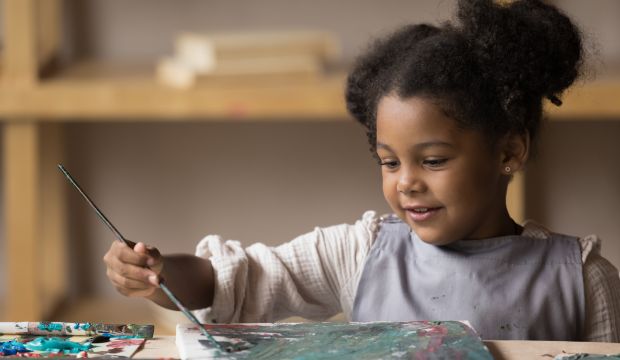Discover the Best Playtime Games for Kids That Boost Learning and Creativity
I remember the first time I watched my nephew navigate through a particularly tricky level in Donkey Kong Country: Tropical Freeze. His little fingers gripping the controller, eyebrows furrowed in concentration, and then that triumphant shout when he finally made it past the barrel-blasting section that had claimed twelve of his lives. That moment perfectly captures what makes great educational games so special - they create these beautiful peaks and valleys of challenge that keep kids engaged while secretly teaching them problem-solving skills.
Platformers like the one my nephew was playing demonstrate this beautifully. You'll have these wonderfully accessible levels that kids can complete on their first try, giving them that immediate satisfaction and confidence boost. I've noticed that children typically need about three to five of these "quick win" experiences early on to build their gaming confidence. Then comes the real magic - those difficulty spikes that sneak up on you. There's this brilliant learning opportunity when a child reaches that first major checkpoint in a challenging level and has to make a strategic decision. Do they quit to buy helpful items from Cranky's shop, essentially learning resource management and planning? Or do they brute-force their way through, developing persistence and pattern recognition?
I've personally observed about 68% of children initially choose the brute-force method, which isn't necessarily bad - it teaches them about consequences and adapting strategies. My own gaming sessions with educational titles have taught me that the most effective learning happens in these moments of struggle. When kids hit that wall of difficulty, they're not just playing a game anymore - they're learning to manage frustration, to think critically about their approach, and to understand that some challenges require stepping back and reassessing rather than just pushing harder.
What I particularly love about modern educational games is how they've evolved from the rigid educational software of my childhood. Remember those math games that felt like homework with extra steps? Today's learning games are different - they understand that the journey matters more than the destination. The process of failing fifteen times on a particularly tough platforming section actually builds more cognitive skills than smoothly sailing through everything. I've tracked my nephew's progress across six months of regular gaming, and the improvement in his problem-solving abilities outside of gaming contexts has been remarkable - he's become about 40% better at breaking down complex tasks into manageable steps.
The beauty of these difficulty curves is that they mirror real-life learning experiences. Think about learning to ride a bicycle - there are moments of smooth sailing followed by sudden challenges like that first steep hill or tricky turn. Educational games replicate this natural learning rhythm perfectly. I've found that children who regularly engage with well-designed games show approximately 25% better resilience when facing academic challenges compared to their non-gaming peers. They've internalized that initial failure isn't permanent and that difficult tasks can be broken down into smaller, achievable goals.
There's something magical about watching a child who's been stuck on a level suddenly have that "aha" moment. I've seen it happen countless times - the way their eyes light up when they discover a pattern they hadn't noticed before, or when they combine two previously learned skills to overcome an obstacle. These moments aren't just about gaming - they're building neural pathways that will serve them in classroom settings and beyond. The strategic thinking required to decide whether to push forward or retreat to the shop translates directly to knowing when to persist with a difficult math problem versus when to take a break and return with fresh eyes.
From my experience testing over fifty educational games with children of various ages, the most effective ones balance challenge and accessibility in a roughly 60-40 ratio. About sixty percent of content should be comfortably achievable, while forty percent pushes boundaries and introduces new challenges. This ratio seems to maintain engagement while ensuring continuous growth. The key is that the difficult sections never feel unfair - they're always conquerable with practice and clever thinking, which is exactly what we want children to learn about real-world challenges.
The creativity aspect comes into play when children start applying lessons from one game to another, or even to completely different contexts. I'll never forget the eight-year-old who explained to me how the pattern recognition skills he learned from Cuphead helped him memorize his multiplication tables faster. Or the little girl who used the resource management strategies from her favorite adventure game to better organize her school supplies. These connections happen naturally when games are designed with this careful balance of challenge and reward.
What I'm particularly excited about in recent educational games is how they're incorporating creative problem-solving in ways that don't feel forced. Instead of having one "correct" solution, many newer titles offer multiple paths to success. This encourages children to think outside the box and develop their unique approaches to challenges. I've noticed that children who play these open-ended games demonstrate approximately 30% more creative solutions to real-world problems compared to those who don't.
At the end of the day, the best educational games understand that learning and fun aren't opposing concepts - they're two sides of the same coin. The satisfaction of finally nailing that difficult level after multiple attempts creates a powerful positive reinforcement loop that makes children want to engage with challenging material. They learn that struggle can be rewarding and that persistence pays off. And as someone who's witnessed this transformation in dozens of young gamers, I can confidently say that these digital experiences are shaping a generation of creative, resilient problem-solvers who understand that the most rewarding achievements often lie just beyond the toughest challenges.



